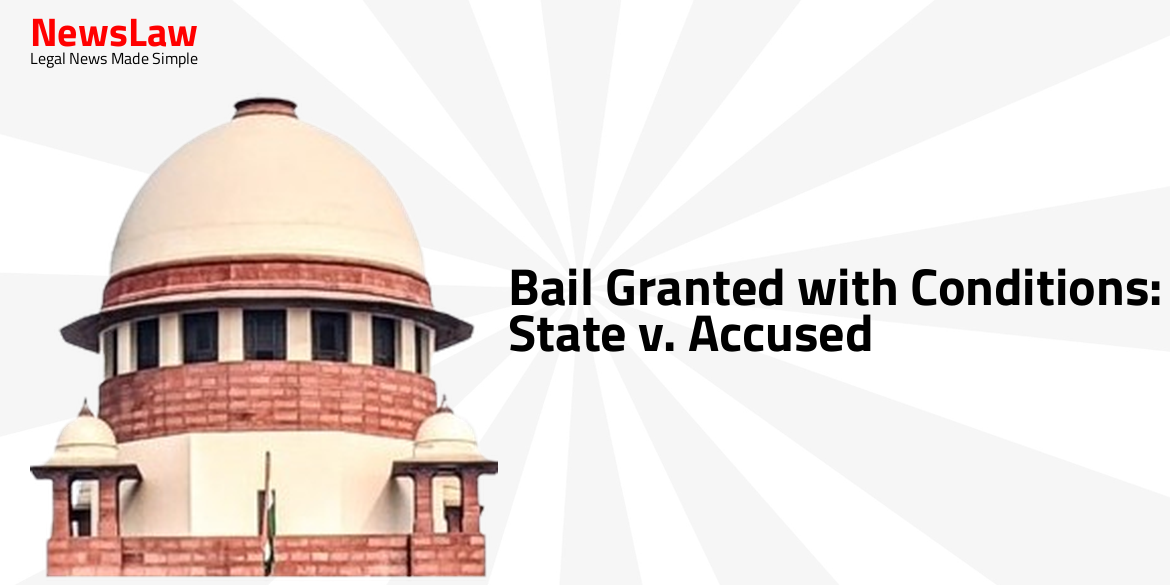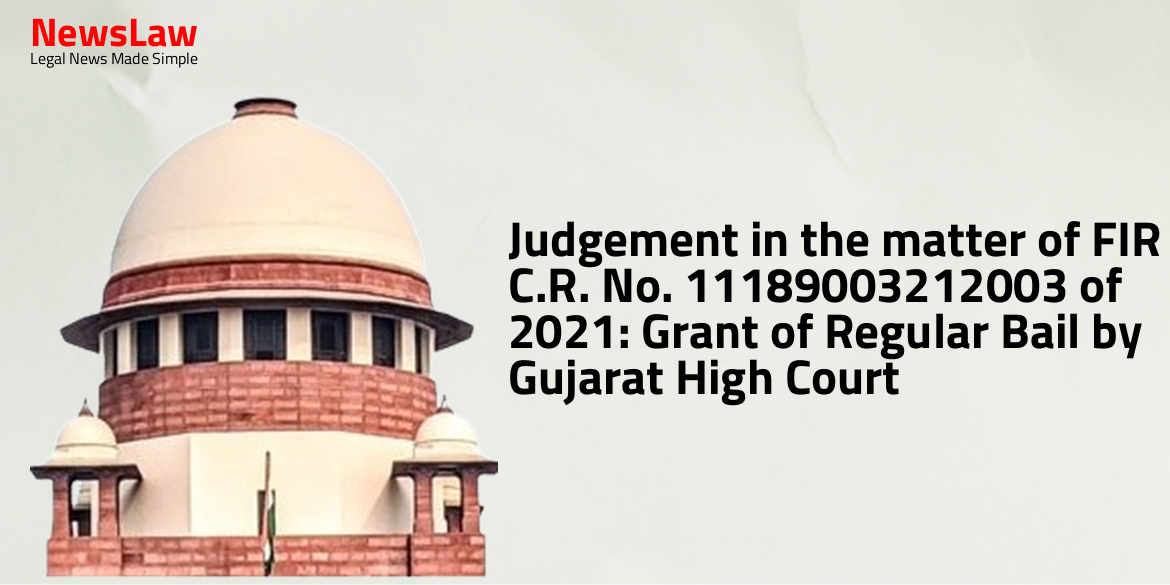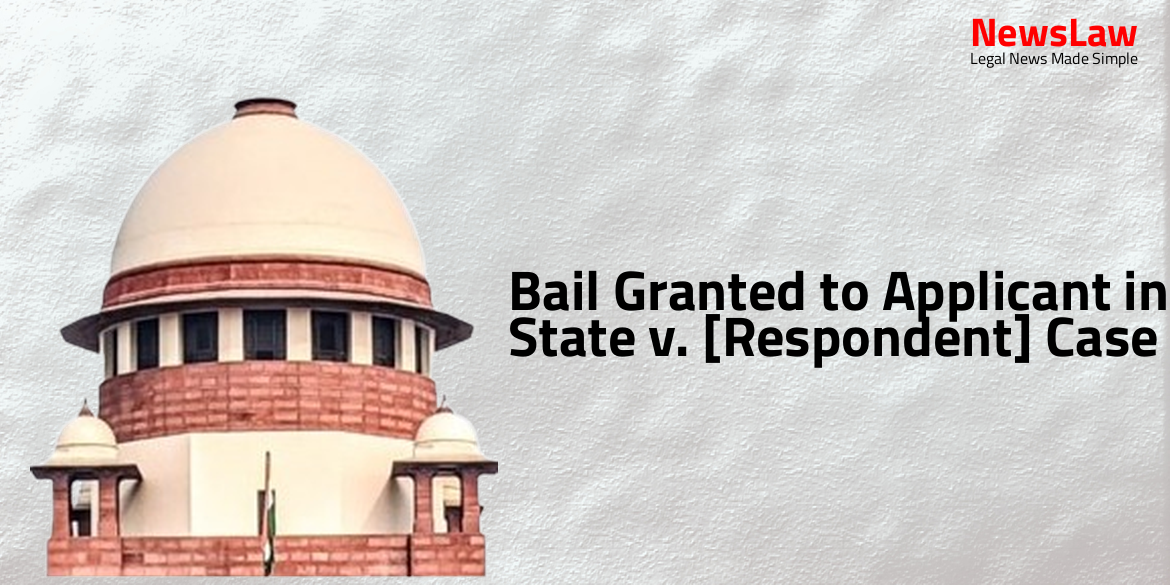In a recent landmark judgment by the Supreme Court of India, bail has been granted to the accused in the case of State v. Accused. The Court analyzed various factors including the nature of the offense and the role attributed to the applicants. The learned APP for the State strongly opposed bail, citing the seriousness of the charged offenses. However, the Court deemed it fit to grant bail with stringent conditions. Find out more about the case and the conditions imposed in the judgment.
Facts
- The learned APP has waived service of notice of Rule on behalf of the State.
- The application is for regular bail under Section 439 of the Code of Criminal Procedure.
- The bail application is in connection with FIR No. 11189008240021 of 2024 registered at Vankaner Taluka Police Station, District Morbi.
Arguments
- Learned advocate for the applicants argues for regular bail with suitable conditions considering the nature of the offence and the role attributed to the applicants.
- Learned APP for the respondent State strongly opposes bail, citing the seriousness of the charged offences and the allegations against the applicants.
Analysis
- The court considered the factors required to be analyzed, including prima facie case, availability of the accused at the time of trial, and the potential for tampering with witnesses.
- The applicants’ lawyers argued that the accused are unlikely to flee from the trial.
- The applicants have been in custody since 17.01.2024.
- The court referred to the law established by the Supreme Court in the case of Sanjay Chandra v. C.B.I. Reported in (2012) 1 SCC 40.
Decision
- Accused must furnish complete and correct address of residence to Investigating Officer and Trial Court.
- Accused must provide contact numbers and surety contact numbers to Trial Court.
- Accused should not change residence without prior permission of Trial Court.
- Accused will be released only if not needed in connection with any other offense.
- If any condition is breached, Sessions Judge can issue a warrant or take appropriate action.
- Accused without a passport must file an affidavit to that effect.
- Bail bond should be executed before the lower court with jurisdiction over the case.
- Accused must file an affidavit stating details of immovable properties owned.
- Accused cannot leave India without prior permission from Trial Court.
- Accused with a passport should surrender it to the Trial Court within a week of bail.
- Enlarging the accused on bail is deemed fit in the circumstances of the case.
- Accused ordered to be released on bail on executing a Rs.10,000/- bond each with a surety.
- Conditions include not tampering with evidence, maintaining law and order, and refraining from criminal activities.
Case Title: SHAILESHBHAI AMARSHIBHAI SARLA Vs. STATE OF GUJARAT
Case Number: R/CR.MA/7490/2024



